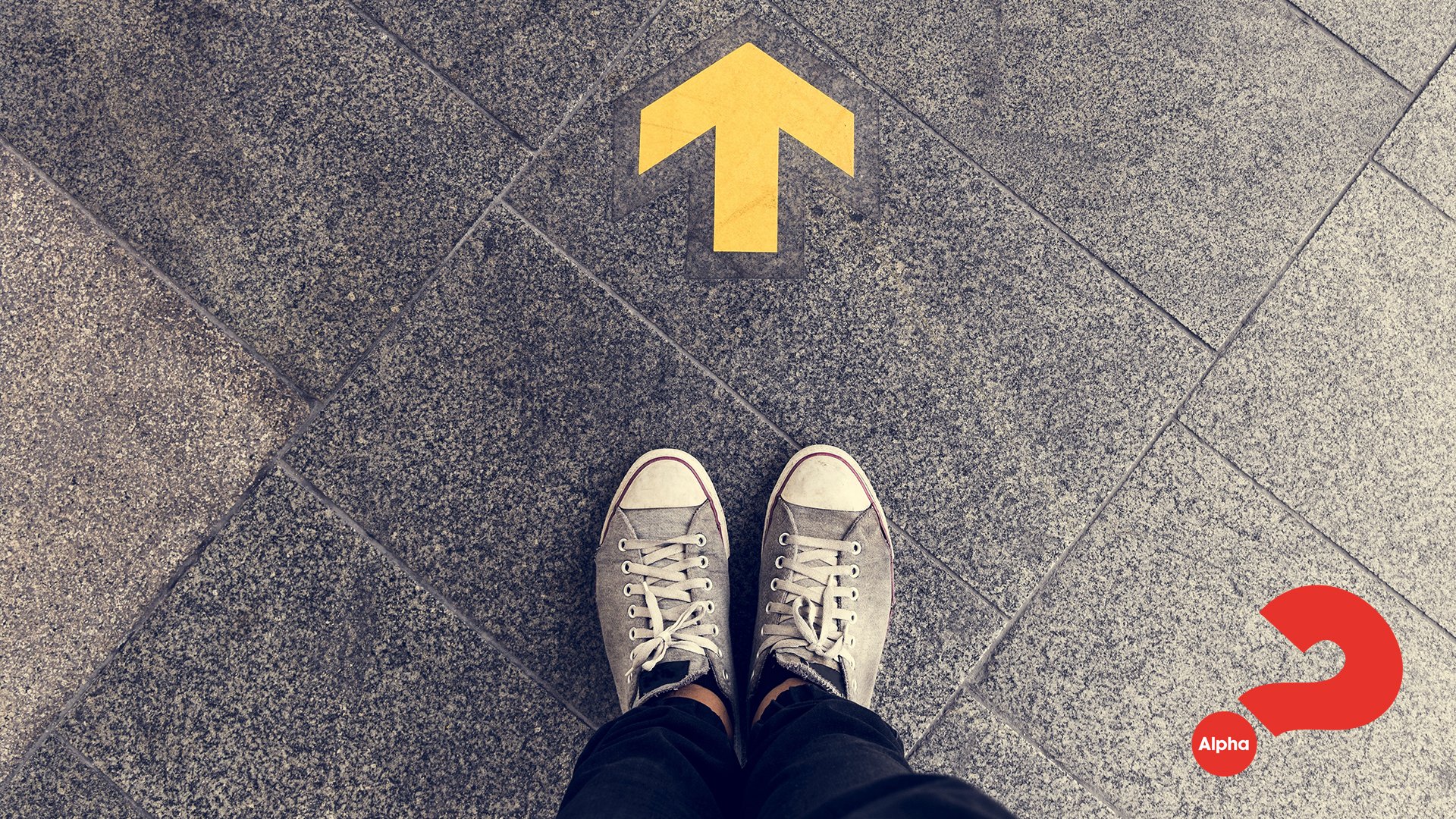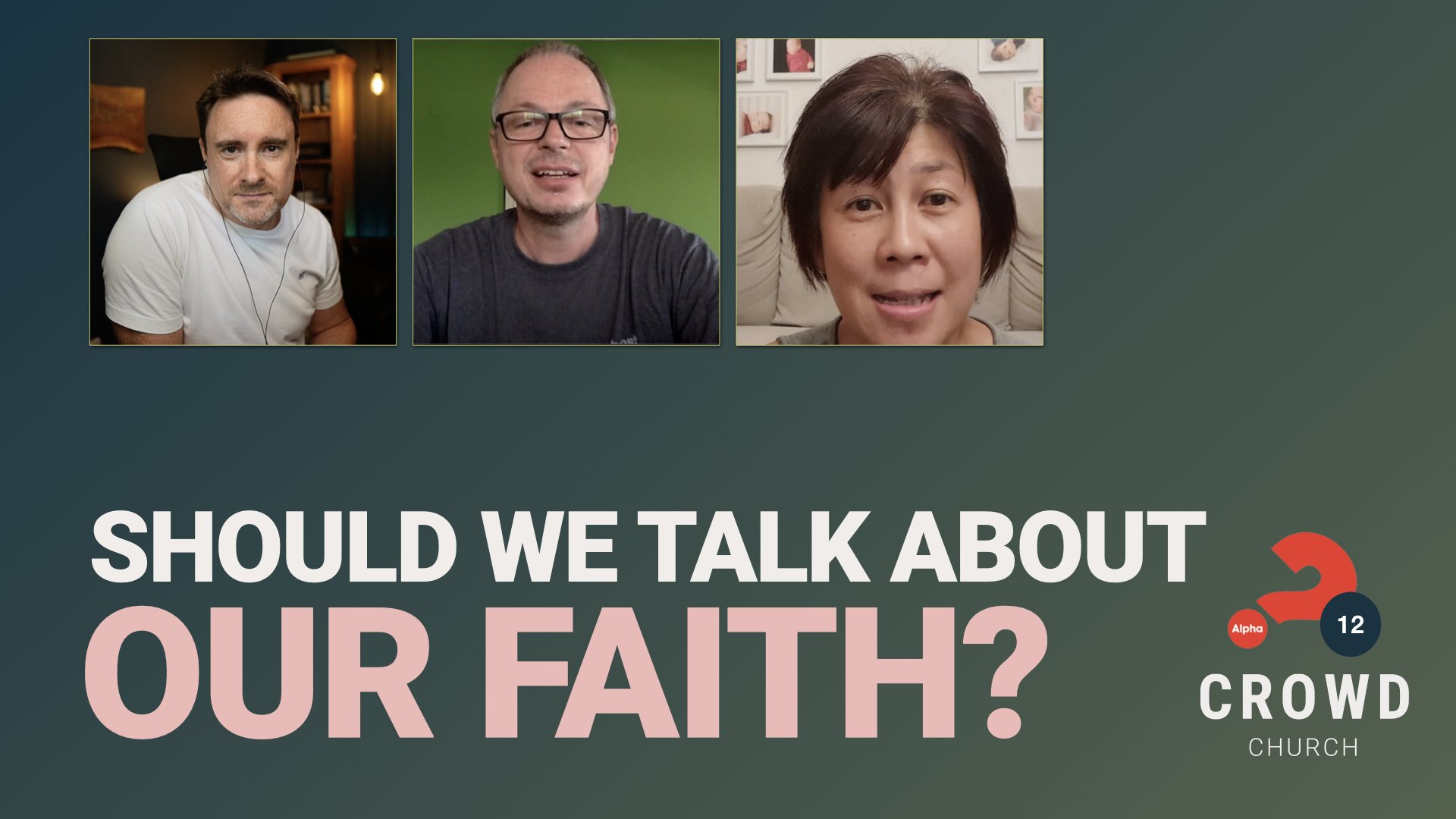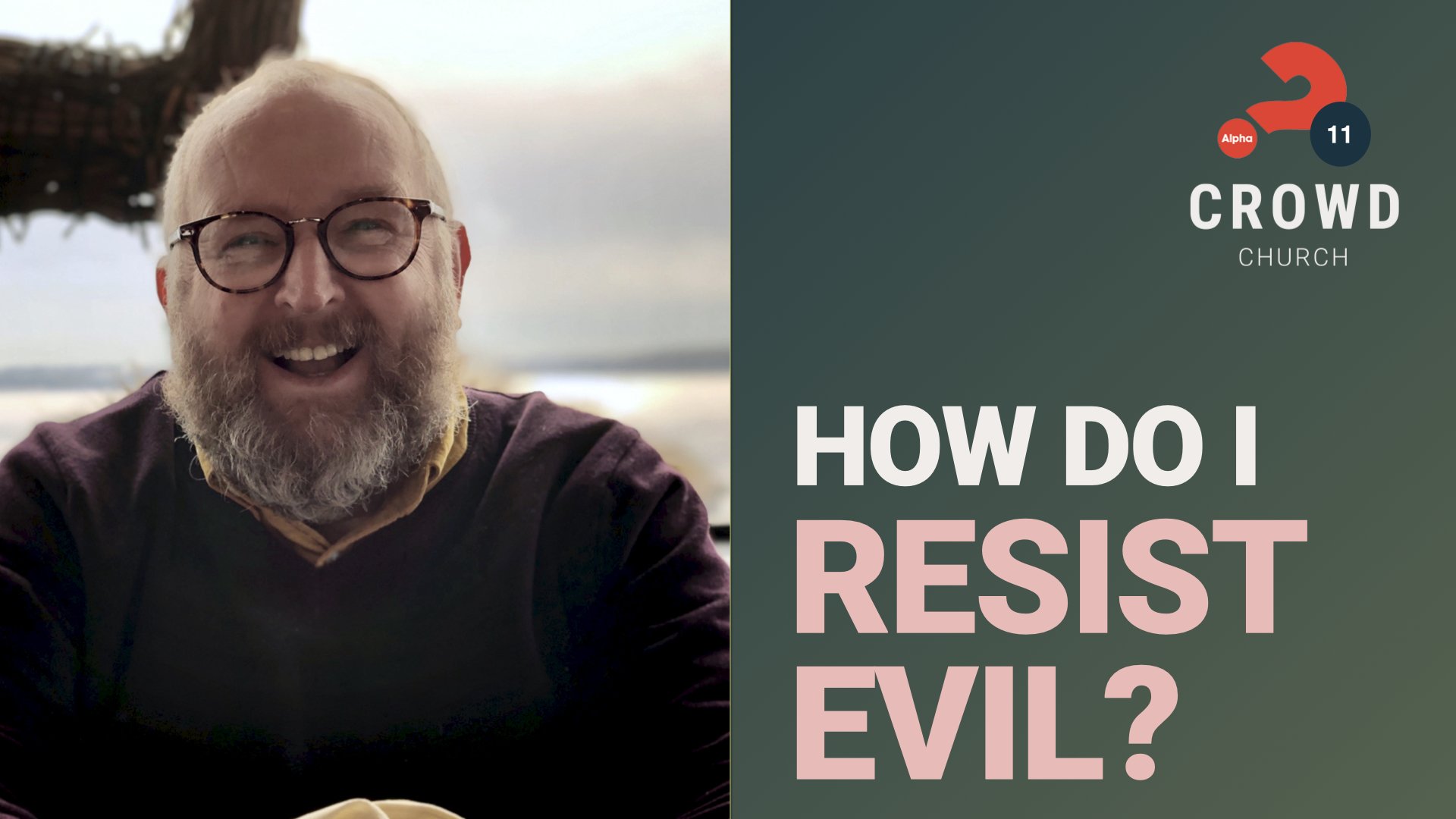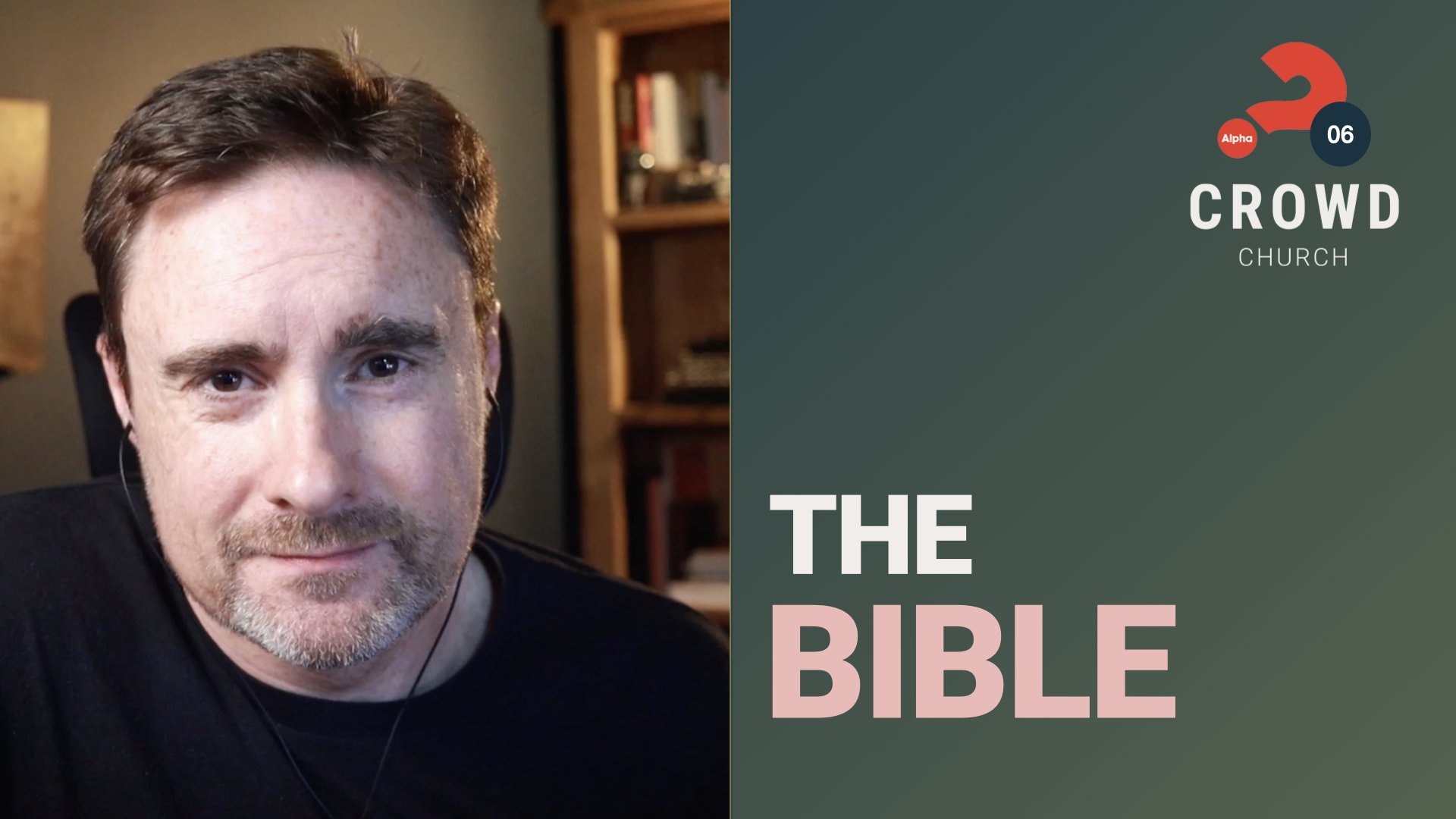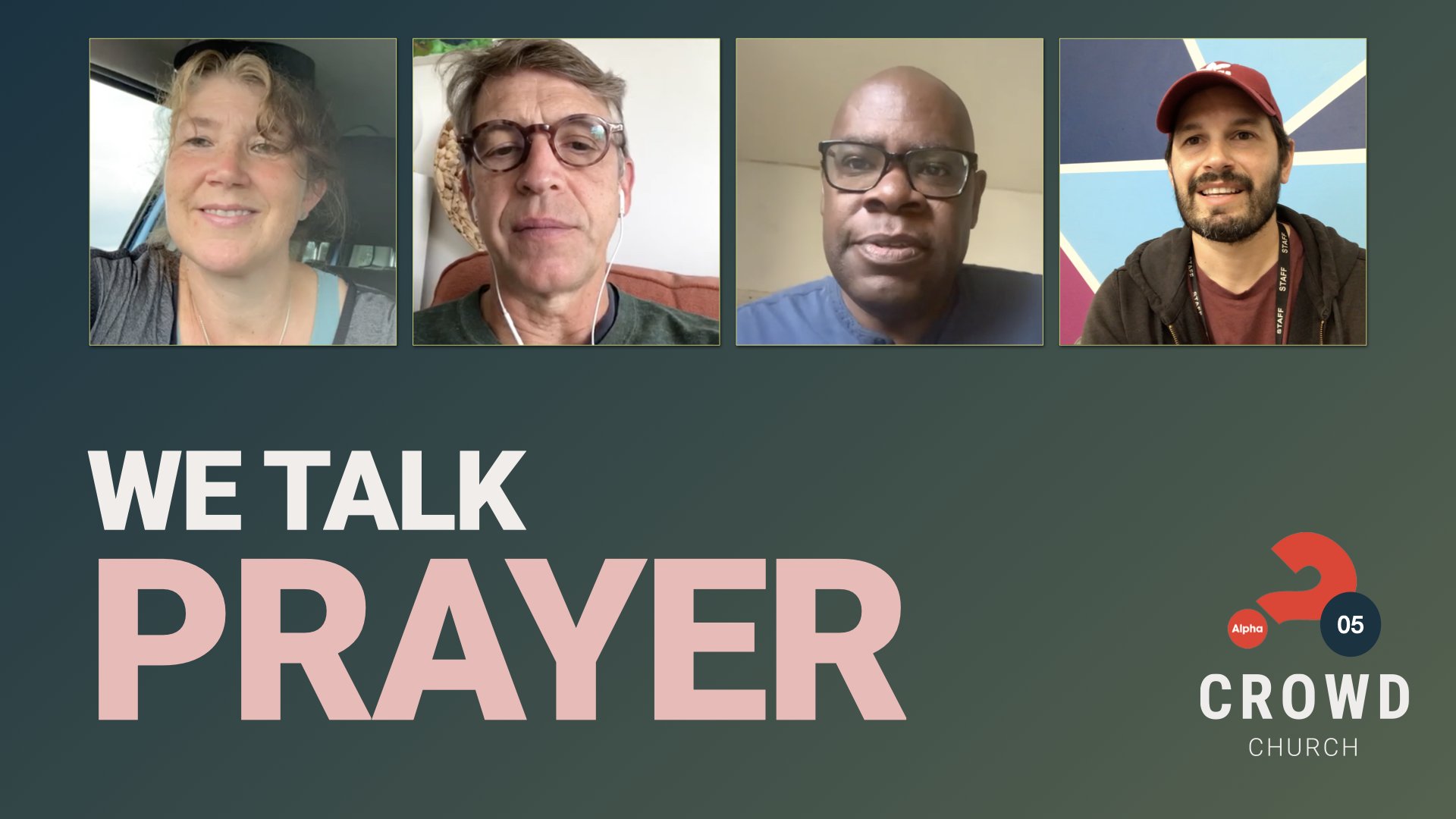Why did Jesus Die? Alpha Course 03
Video of the complete Livestream where Pete asks, “Why Did Jesus Die?”
Video Timeline
Use the time stamps below to scrub through the video to find the place that you want
08:50 - Welcome from Matt & Anna
15:23 - Why Did Jesus Die? - Peter Farrington
35:36 - Worship
41:32 - Conversation Street
57:06 - Catch Up with Josh
59:34 - Wrapping Up with Matt & Anna
1:04:51 - Closing Worship
Talk: Why did Jesus Die?
"The gospel is not only the most important message in all of history; it is the only essential message in all of history."
— Jerry Bridges
Let's unpack the question, "Why did Jesus die?" and jump straight into a famous bible verse in the Gospel of John:
“For God so loved the world, that he gave his only Son, that whoever believes in Him should not perish but have eternal life.”
Let's have a look at a word in this verse that often gets overlooked or even avoided, and that's the word perish. Why would anyone have to perish? So, although the title of this talk is, Why did Jesus die? I want to think about why would anyone have to die?
Why would anyone have to die?
“Be appalled, O heavens, at this; be shocked, be utterly desolate, declares the Lord, for my people have committed two evils: they have forsaken me, the fountain of living waters, and hewed out cisterns for themselves, broken cisterns that can hold no water.”
The above verse is taken from the book of Jeremiah in the Old Testament where a guy called Jeremiah is speaking to the Israelites on behalf of God. And he's talking about the biggest crisis that has ever faced humanity, which is the problem of sin.
What exactly is sin?
Sin is one of those words that often gets thrown around and misunderstood. It simply means missing the mark. And so, in the context of Christianity, it means missing God's mark or His standard. And it's a problem because it destroys the cisterns (big tanks for storing water) of our lives so that our hearts can't hold any peace or joy or love or comfort. It just seeps out of the cracks.
You need only to take one glance at a history book or today's headlines, and it would appear that there's virtually no end to how we can hurt ourselves and hurt others and, in so doing, decimate our capacity to contain or hold life. But this is just one side of the coin of sin. Jeremiah also tells us that we've forsaken God. We've rejected him; we've given up God and walked away from him. That’s the other side of the coin.
Do we need God?
In this passage, God calls himself the fountain of living water, implying that we were created to drink profoundly and have our hearts fully satisfied in the love of God. But we've rejected him. And we've turned away from him, and it's as if we've turned away from a deep well of life-giving water and, we're just kneeling in the dirt, trying to scoop up some sewage water, like shards of a broken cistern.
So we've effectively said to God, actually, God, I'd like to be on my own. I can take things from here. I don't need you.
Sin is an act of betrayal on a cosmic scale. And it's an insult to God's infinite glory and perfection. The Bible speaks in many places about how we are at enmity with God because of our rebellion. We're bold opponents to him; we're his enemies.
Is sin really that bad?
Now, you might read this and think, sure, I've made mistakes. I've done some things wrong that I would like to take back. But, deep down, I'm a good person. I'm alright. I think I'll be okay. But the Bible doesn't categorise people into different degrees of good and evil, like, I'm a good person who's just made a mistake, now and then or, I've got a good heart. Because Jesus only died for one category of people, and the Bible calls that category of people sinners.
So, according to God's standard, you, Mother Teresa, Adolf Hitler, and I are all in the same boat. We are all the same in the eyes of God. We could be doing all kinds of good things - building orphanages and hospitals, feeding the poor, and still in our hearts living in total rebellion to God, never acknowledging him, worshipping everything and anything besides Him, wishing Him dead. And the Bible even talks about our righteousness or good deeds being like filthy rags. That's what they look like to God.
God’s standard
Let’s look at this standard.
“You have heard that it was said, ‘You shall not commit adultery.’ But I say to you that everyone who looks at a woman with lustful intent has already committed adultery with her in his heart.”
“And you shall love the Lord your God with all your heart and with all your soul and with all your mind and with all your strength.”
How do you measure up after those two commandments? And they're just two commandments out of literally hundreds that give us a picture of what God's standard looks like in practice.
In a book in the New Testament, called Romans, Paul says,
““None is righteous, no, not one; no one understands; no one seeks for God. All have turned aside; together they have become worthless; no one does good, not even one.””
“for all have sinned and fall short of the glory of God”
Can a God of love just forget about sin?
Now, you might think, what's with all this talk of sin? I thought God was love. Can't he chill out a bit? Cut us a bit of slack? And maybe, be a bit more inclusive? But you see, love and justice are inextricably linked, and you cannot have one without the other.
And I think you see this in the way the world is. You see this in the way that we live our lives. If we love Jews, we must hate the Holocaust. If we love Jews, it follows that we must hate antisemitism; we must be completely intolerant of it. And it is the same with God; it's because God loves and because He is beauty and goodness, and kindness and peace and life and perfection. It's because of that that he cannot tolerate sin.
And he would be pure evil; he wouldn't be anyone that you'd want to put your trust in if he were just to let sinners go unpunished and let them off. And I think we've seen, over the last 12 months, that the world is crying out for justice.
But if we have one honest look at ourselves, just for a moment, we have to admit that if God were to execute ultimate justice, it would be truly terrible news for each of us. Because although we have all been victims of wrongdoing to one extent or another, we know that at the same time, we've all been perpetrators of evil too. And if, at some point, God were to execute ultimate justice, the finger would turn back on us. Because we're not only victims, we are perpetrators of sin. None of us passes the grade.
How a Ferrari helps us understand sin
If I take a key out of my pocket and use it to scratch a rock that I find in the street, I haven't broken any law, and I won't face any consequences. It's just a rock. But if I go to an abandoned car dumpsite, take the same key, and scratch a car that's just been dumped there, people might say, what are you doing? But again, there's no consequence.
Now, if I go to a used car lot, take the same key, and scratch a used car, now I'm guilty of a criminal offence because that car has some value. But if I go to a Ferrari car lot, take that same key, and scratch a brand new Ferrari, my punishment will now be way more significant. My guilt is intensified, and so is the sentence that I will face because the value of the vandalised thing was so much higher.
Let's take this to another level. What if I kill the man who designed the Ferrari? What if I rebel against the God who made the person who created the Ferrari? And I rebel against the God who made the Grand Canyon and Mount Everest and the billions upon billions of galaxies in the universe? And the God who gives me the breath that I'm breathing now. What if I rebel against him? Imagine how great that punishment would have to be for someone who wronged Him.
Now we're all guilty. We're guilty of cosmic treason against an infinitely worthy, infinitely valuable God. And as a result of that, God's wrath with anger is rightly set against us. We're all fully deserving of infinite punishment for rebelling against an infinitely worthy God. And that punishment is an eternity cast out of the love of God, in hell.
So I know this has been a long answer to the question, but this is why someone had to die. I know this is pretty heavy stuff. I'm sure you didn't wake up this morning thinking, oh yeah, I think I'll spend a bit of time listening to some random guy on the internet talk about wrath and sin and punishment and stuff. But stay with me; there is a rescue plan.
The Rescue Plan
One of my favourite passages in the Bible is in the book of Romans.
“For while we were still weak, at the right time Christ died for the ungodly. For one will scarcely die for a righteous person—though perhaps for a good person one would dare even to die— but God shows his love for us in that while we were still sinners, Christ died for us. Since, therefore, we have now been justified by his blood, much more shall we be saved by him from the wrath of God. For if while we were enemies we were reconciled to God by the death of his Son, much more, now that we are reconciled, shall we be saved by his life. More than that, we also rejoice in God through our Lord Jesus Christ, through whom we have now received reconciliation.”
Now, I know there's a lot in those few verses, but I want to pick up on what it says about who we are without God. Those verses say that we are weak, ungodly, unrighteous, sinners and enemies of God. And yet it was there in that place that God sent His Son to die for us. That is how deep His love is.
It’s a rescue plan based on love.
He would have been justified to leave us to our own devices, and no one could have pointed the finger at him if he had just left us alone in our misery and to an eternity of punishment in hell. No one could judge him if he just left us to that. And we didn't even want to be rescued; we were addicted to our independence. And we certainly didn't deserve to be saved. But he died for us anyway. And that's how deep His love is.
Bible says that on the eve of the crucifixion, Jesus sweats blood from the sheer dread of being cast out of the love of the Father and being the object of God's wrath. And that was what we deserved. But He took our place. It says that we were saved from the wrath of God because of the death of Jesus. That's how deep His love is.
“For our sake he made him to be sin who knew no sin, so that in him we might become the righteousness of God.”
You are not enough
So, contrary to the platitudes that the world might offer you, I want to tell you that you are not enough. And you do not merely need healthier self-esteem or to be more kind to yourself; you need a brand new self. And we all require the kindness of God, as displayed on the cross. And this is the message of the gospel and the reason why Jesus died. Because there's no way that you or I or anyone could ever be enough. And you don't need to be because Jesus has been and is enough for you; if you'll look to Him.
Christ came to us in the form of man so that He could indeed be our representative. And he lived a perfect life. In 2 Corinthians 5:21, it says that Jesus knew no sin. He lived a perfect life and yet became sin for us. He took all of our sin, our guilt, our shame, and the wrath of God upon himself.
And this is the great exchange that our sin and wretchedness was attributed to Jesus and wiped clean from our record forever. And his righteousness or his perfect record is attributed to us if we choose to look to Him. And we can now be reconciled to God the Father and be welcomed back into an unbroken relationship with him. Jesus's death on the cross mends the shattered cisterns of our lives. And it brings us back to the fountain of living water that Jeremiah spoke of, where we could indeed be satisfied.
And because Jesus was fully God and fully man, so he could truly be our representative. But he was fully God at the same time, which meant that his sacrifice on the cross was perfect, and it was all-sufficient, which means that it was more than enough to satisfy God's wrath.
Set right with God
So if there's something that you've done in your life that you're ashamed of which keeps you up at night, know that there is nothing that the blood of Jesus does not cover. There is nothing that the blood of Jesus is not enough for.
For those who put their faith and trust in Jesus, there is no longer any guilt, not even one ounce of wrath or anger or disappointment from God towards you. Jesus took all of that. And if there's no longer any guilt, what does it mean to have God as your God?
Well, it means that everything that God is and everything that He does is for you and no longer against you. And there are so many ways for him to be good to you that it will take ages of eternity for Him to pour out His love on you. So come to the fountain of living water today!
CONVERSATION STREET
Questions we ask this week
Conversation Street is part of our live stream, where the hosts (in this case, Matt & Anna) chat through Pete’s talk and answer questions that were sent in through the live stream. You can watch the conversation in the video, it starts at 41 min 32 seconds into the live stream, or you can go straight there by clicking the button below. This week’s questions and topics of conversation are:
Why it is important to also talk about sin (as well as the nice stuff)
Understanding sin, growing up in a Christian family.
What is sin?
What is repentance?



